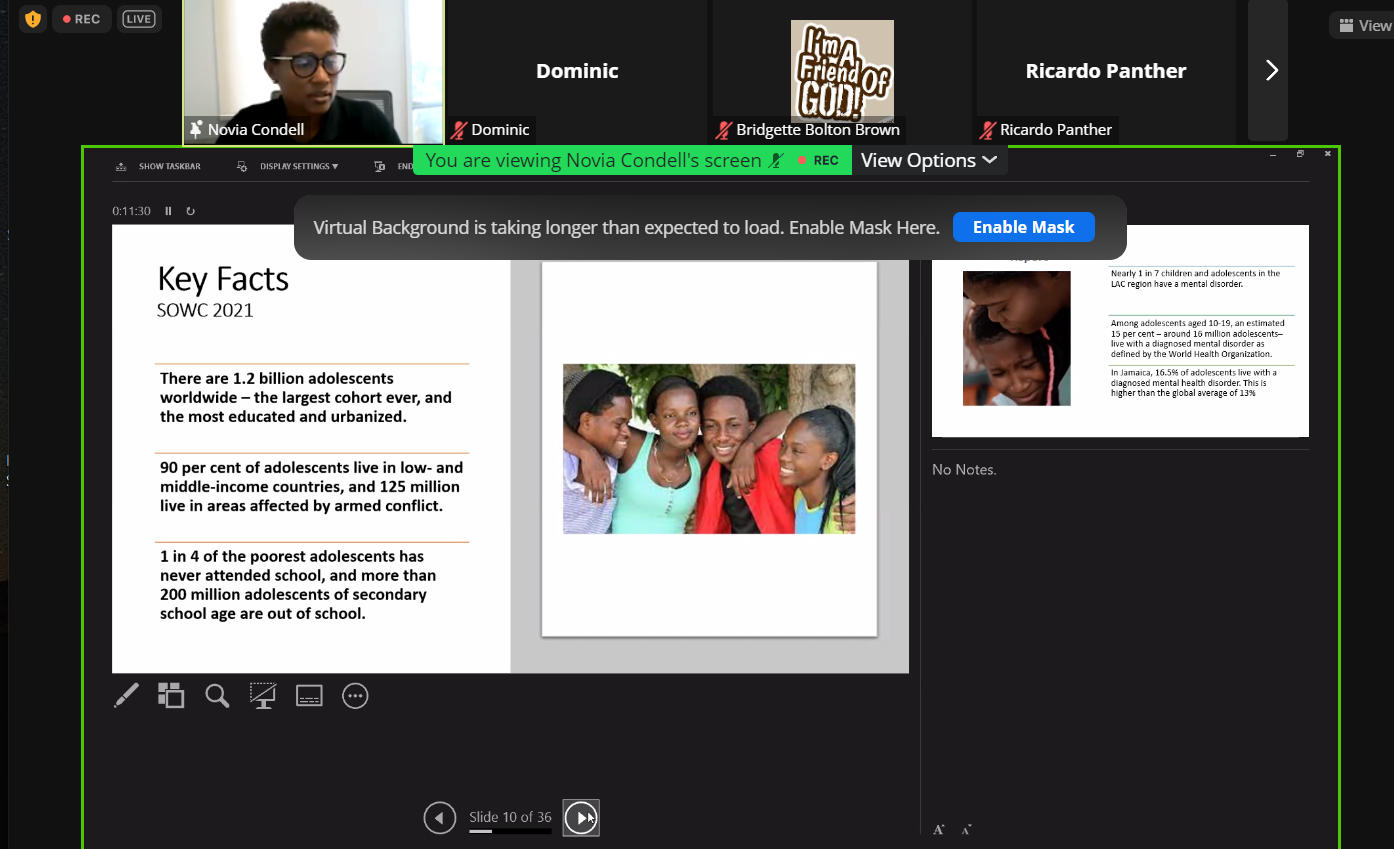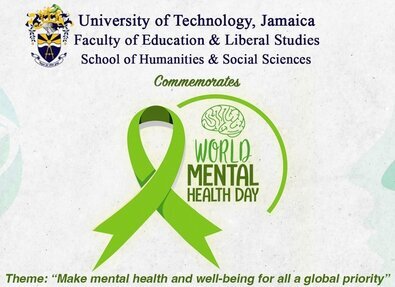The need to support young people’s mental health was the focus of a webinar recently hosted by the Faculty of Education and Liberal Studies at the University of Technology, Jamaica (UTech Jamaica) to commemorate World Mental Health Day on Monday, October 10th. The day’s theme was ‘Make mental health and wellbeing for all a global priority’, and the webinar featured a wide array of experts who focused the discussion on mental health from different angles. These included adolescents, the media, and creating mental health literacy for adolescent.

Dr. Novia Condell, Health Specialist at UNICEF Jamaica was a guest speaker at the webinar. She stated that mental health awareness amongst young persons and adolescents is a key priority of the UNICEF in tandem with The Ministry of Health and Wellness. Stating that the adolescent stage (10-19 years of age as defined by the World Health Organisation) is a stressful time, Dr. Condell noted that with the generation gap widening, adolescents are being increasingly misunderstood by the older generation. Referring to a UNICEF report released last year, Dr. Condell stated that in Latin America 1 in 7 children have a mental disorder and that 60% of all people that attempted suicide fell in the age range of 10-24 years of age in 2014.
Consultant psychiatrist Dr. Earl Wright stated that “mental health equates to brain health and that 1 in 5 persons in Jamaica will suffer from depression, and that it therefore becomes imperative to target persons from a younger age so as to enable persons to be able to cope with life, manage the stress of life better and be more productive in their personal and professional lives.” Milton Walker, Group Head of News, Sports and Current Affairs at the RJRGleaner Communications Group stated that photographers, videographers, reporters and journalists are exposed to violence daily, and therefore their mental health is of paramount importance.
Impact of the COVID-19 Pandemic
Professor Shermaine Barrett, Dean of the Faculty of Education and Liberal Studies and a strong advocate for good mental health practice amongst young people, stated that the Covid-19 pandemic has exposed the need to address mental health as an important issue for young adolescents. Professor Barrett referred to statistics that “300 million persons do not have a single friend” which leads to underlying issues within young people such as loneliness, isolation, depression and anxiety.
Dr. Condell also spoke about the impact of the Covid-19 pandemic and some of the concerns gathered from a focus group of adolescents of both genders. These concerns include employment, provision for their families, their self-esteem and their education. The focus group also stated that schools are a critical space for them and that support is needed at a community, family, peer and school level. They stated that healthy coping mechanisms include: listening to music, playing games and talking to their peers.
Healthy Ways of Protecting Mental Health
Dr. Condell stated that all adolescents aren’t the same and that some are particularly vulnerable and hence need a safe space free of judgement to express their concerns. A vox pop was conducted amongst students at UTech Jamaica and all participants stated healthy ways of protecting their mental health from: talking to friends, curating and limiting exposure and the content they consume on social media platforms and engaging in leisure activities such as sports and drawing.
Rae Anna Robinson, a first year Law student at the University of the West Indies Mona Campus spoke about the “U-Matter” chatline initiative for adolescents. Guidance and counselling are offered for mental health issues faced by these young people, who are able to reach the chatline by messaging U-Report.
Within the next few months, a campaign will be launched in association with the Jamaica Association for the Blind. This initiative is aimed to spread mental health awareness in vulnerable groups as well as disabled persons and seek to inspire more young persons to prioritise their mental health as a healthy mind leads to a health life.
Reported by: Dominic Townsend-Mcleod

